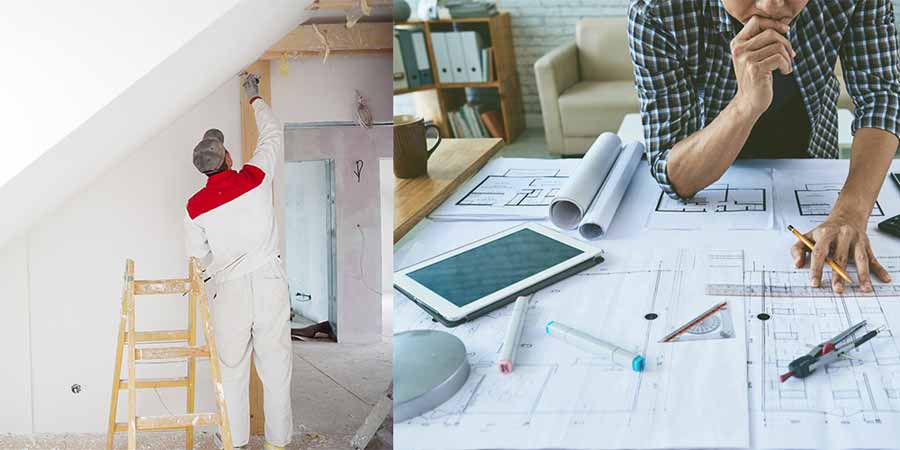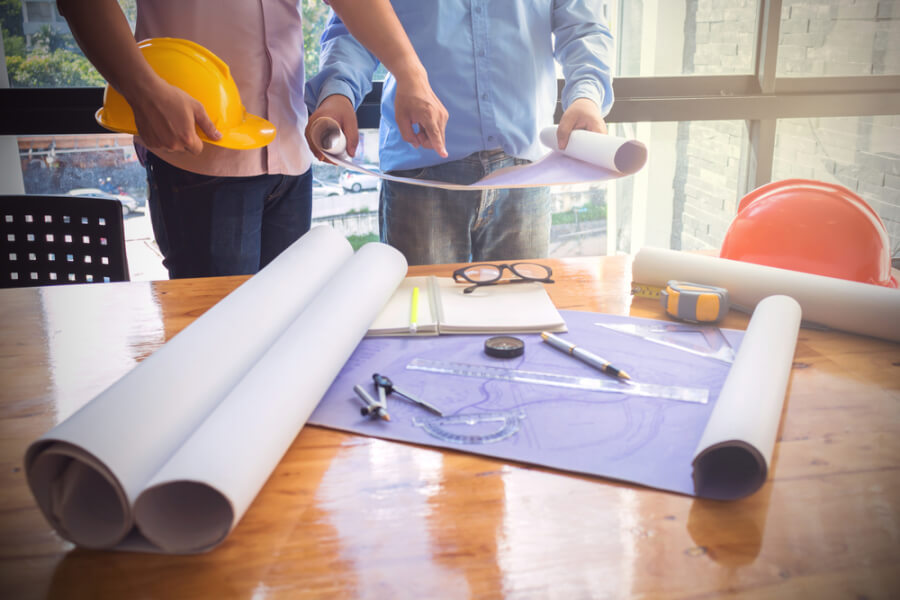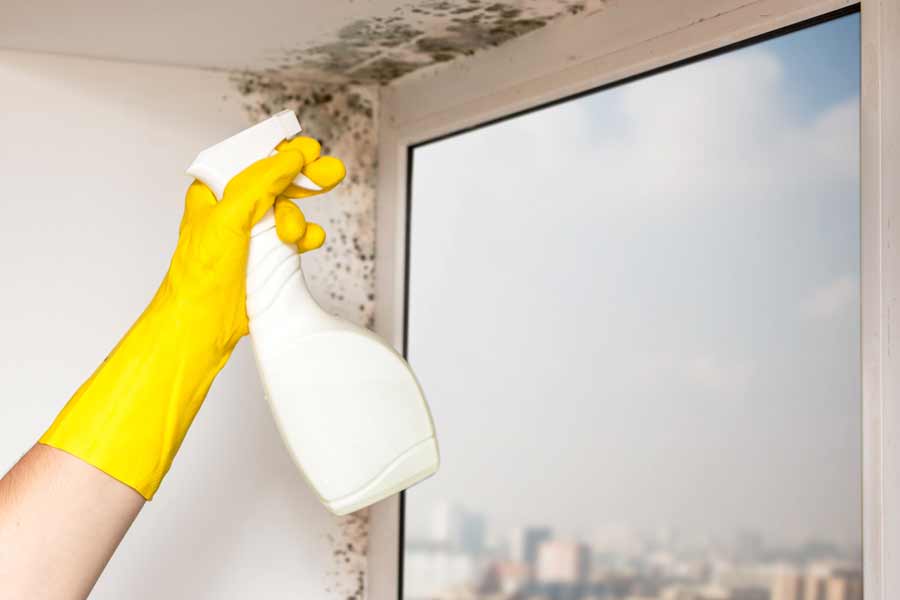
We usually recommend landlords review their rental property regularly and consider redecoration or refurbishment according to the rental and the amount of wear and tear. Sometimes a simple refresh of décor and soft furnishings is enough, but lucrative corporate tenants expect to rent a managed property that is up to date. The days when tenants would accept shabby decor or furnishings are long gone and a tired-looking apartment will take longer to let in a competitive rental market. An older property may need more maintenance on a regular basis and improvements such as installing a new kitchen or bathroom will help secure a quicker let and keep voids to a minimum.The good news is that there are allowances that you can claim against some refurbishment works but there are key points to consider to ensure you stay within HMRC’s regulations.
Replacement of Domestic Items Relief
 First, you can deduct the actual cost of replacing furnishings in your rental property from your profit before tax – this is known as Replacement of Domestic Items Relief. (Before April 6 2016 there was a Wear and Tear allowance of 10% of rent received, regardless of how much you had actually spent.) You can claim a deduction for the cost of replacing domestic items such as movable furniture, household appliances and kitchenware – including sofas, beds and other furniture, TVs, fridges, freezers, carpets and floor coverings, curtains, crockery, cutlery and linen. This means there is now a real incentive to replace old or worn items in order to maintain the property’s interior.It is important to keep full and accurate records of any expenditure if you replace any of these items. The initial cost of furnishing a rental property is not covered however. Any new items must be a replacement and not an improvement, in order to qualify for this relief.
First, you can deduct the actual cost of replacing furnishings in your rental property from your profit before tax – this is known as Replacement of Domestic Items Relief. (Before April 6 2016 there was a Wear and Tear allowance of 10% of rent received, regardless of how much you had actually spent.) You can claim a deduction for the cost of replacing domestic items such as movable furniture, household appliances and kitchenware – including sofas, beds and other furniture, TVs, fridges, freezers, carpets and floor coverings, curtains, crockery, cutlery and linen. This means there is now a real incentive to replace old or worn items in order to maintain the property’s interior.It is important to keep full and accurate records of any expenditure if you replace any of these items. The initial cost of furnishing a rental property is not covered however. Any new items must be a replacement and not an improvement, in order to qualify for this relief.
How do you decide whether an item is a replacement or an improvement?
If an item is replaced with an improved item, the cost of the element of the replacement item that reflects the improvement is not allowable. HMRC give an example of a washing machine that would cost £400 which is replaced by a washer dryer costing £600. In this case only £400 can be claimed as an expense. And if you replace an old sofa (which would have cost you £400 to replace) with a sofa bed instead which costs you £550, you can only claim £400 as a deduction and no relief is available for the £150 difference.
Allowable expenses including maintenance and repairs
You can also deduct allowable expenses from your rental income if these restore a property to its original condition and are solely for the purpose of letting the property. Anything that is a fixture to the building and is replaced with an equivalent item is deductible. Fixtures are considered as anything that would not be removed by an owner if the property was sold such as a bath, toilet, boiler and kitchen units. These could include general maintenance and property repairs such as replacing broken roof tiles or a broken boiler.It is important to remember that the replacement can only be claimed as an allowable expense if the new item/work is of a similar quality – it must not be an improvement. Maintenance and repairs are also considered to be allowable expenses if they restore the property to its original condition. The cost of redecoration between tenancies to restore the property to its original condition can be deducted from rental income. However, if you replace carpets with a new wood floor then this cannot be claimed as it is seen to be an improvement.Similarly, if you replace an outdated kitchen with a new kitchen of a similar quality then you can deduct the cost from rental income. But if the new kitchen is of a higher specification than the original, you can only claim for the cost of a kitchen of similar quality – you cannot claim for the improvement. If the deductible expenses in a single year are more than the rental income this will generate a loss which can be carried forward and set off against future rental income.
Capital expenses
Capital expenses such as building an extension or installing a security system if the property didn’t already have one are not allowable. But it is worth keeping records and receipts as you might be able to set them against Capital Gains Tax if you eventually sell the property.You can find more useful information on tax allowances from HMRC here.
 The advantages of refurbishing and upgrading a rental property
The advantages of refurbishing and upgrading a rental property
It is important to remember that upgrading facilities such as kitchens and bathrooms ensure a rental property lets more quickly, sometimes for a higher rent, helping you achieve a higher rental yield. Enhancing the presentation and appeal of a rental property is therefore even more important in maximising return on investment than solely taking advantage of the tax allowances available so you should always evaluate the effect any refurbishment work will have on your potential asking rental.
More information on tax allowances
It can be difficult to decide whether something is a replacement, an improvement or a capital expense – it is not always clear cut. Many cases may need to be decided on an individual basis according to the work that has been carried out – we would therefore suggest landlords seek advice from an accountant who can advise on what you can claim.
If you are an overseas investor, we also have this comprehensive tax guide that can help inform you better. For more property news, advice and updates, subscribe to our newsletter.
International offices
















 First, you can deduct the actual cost of replacing furnishings in your rental property from your profit before tax – this is known as Replacement of Domestic Items Relief. (Before April 6 2016 there was a Wear and Tear allowance of 10% of rent received, regardless of how much you had actually spent.) You can claim a deduction for the cost of replacing domestic items such as movable furniture, household appliances and kitchenware – including sofas, beds and other furniture, TVs, fridges, freezers, carpets and floor coverings, curtains, crockery, cutlery and linen. This means there is now a real incentive to replace old or worn items in order to maintain the property’s interior.It is important to keep full and accurate records of any expenditure if you replace any of these items. The initial cost of
First, you can deduct the actual cost of replacing furnishings in your rental property from your profit before tax – this is known as Replacement of Domestic Items Relief. (Before April 6 2016 there was a Wear and Tear allowance of 10% of rent received, regardless of how much you had actually spent.) You can claim a deduction for the cost of replacing domestic items such as movable furniture, household appliances and kitchenware – including sofas, beds and other furniture, TVs, fridges, freezers, carpets and floor coverings, curtains, crockery, cutlery and linen. This means there is now a real incentive to replace old or worn items in order to maintain the property’s interior.It is important to keep full and accurate records of any expenditure if you replace any of these items. The initial cost of  The advantages of refurbishing and upgrading a rental property
The advantages of refurbishing and upgrading a rental property